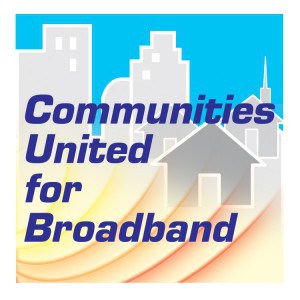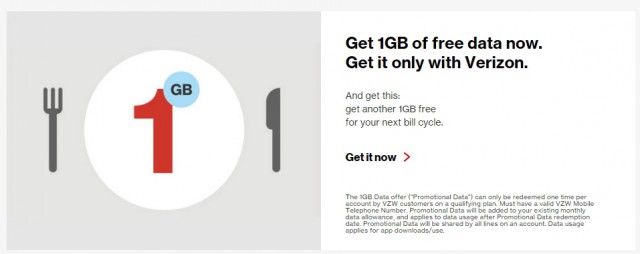 North Carolina faces a moratorium on municipal broadband deployment. On Wednesday, Senators David Hoyle and Daniel Clodfelter will introduce a bill expected to stall community broadband projects across the state. The bill, which has yet to be seen by the public, should appear in the Revenue Laws Study Committee, co-chaired by Clodfelter. We have heard the bill faces mere minutes of consideration before a quick vote, in hopes of moving it forward before the public finds out what elected officials are doing on their behalf.
North Carolina faces a moratorium on municipal broadband deployment. On Wednesday, Senators David Hoyle and Daniel Clodfelter will introduce a bill expected to stall community broadband projects across the state. The bill, which has yet to be seen by the public, should appear in the Revenue Laws Study Committee, co-chaired by Clodfelter. We have heard the bill faces mere minutes of consideration before a quick vote, in hopes of moving it forward before the public finds out what elected officials are doing on their behalf.
Proponents of the moratorium argue that municipal broadband harms private industry and reduces tax revenue the state earns from those businesses. But their argument lacks something — merit. Missing from the debate are the actual numbers from the state’s largest telecommunications companies. How much tax revenue does Time Warner Cable, AT&T and CenturyLink (formerly EMBARQ) generate? We don’t know and the two senators (and the companies involved) aren’t saying.
Municipal broadband projects bring numerous benefits to North Carolina communities:
- jobs (taxpayers);
- high tech businesses moving into the state (taxpayers);
- entrepreneurial innovation that creates new small businesses (taxpayers); and
- benefits to the education and health care sectors (future taxpayers and keeping current taxpayers alive and healthy).
Make no mistake — a moratorium is just a stall tactic to protect current provider profits and avoid competition, all while giving them more time to organize a push for a permanent ban on such projects.
Why are Hoyle and Clodfelter only concerned with protecting incumbent telecom companies? What about the rest of us?
Please join us tomorrow at the Legislative Office Building in Raleigh, and perhaps we can ask them.
Action Alert — We Need Your Attendance!
- Where: Legislative Office Building, Raleigh
- When: Wednesday May 5th at 9:30am, Room 544
- Why: Just having consumers in the room make elected officials nervous, especially when they are about to introduce a bill the public has never seen five minutes before a vote to move it forward in the short legislative session starting May 12th.

GOOGLE AND SEVEN INDUSTRY GROUPS OPPOSE NC MUNICIPAL BROADBAND MORATORIUM
Raleigh, NC – May 4, 2010 Google, Intel and six other private sector groups announced strong opposition today to a North Carolina municipal broadband moratorium being considered by the General Assembly’s Revenue Laws Study Committee, calling it “a step in the wrong direction,” “counterproductive” and “conspicuously in opposition to national broadband policy.” Legislation to prohibit municipal broadband deployments in the state is expected to be introduced and voted on tomorrow May 5. At least 45 individual communities in North Carolina, including Raleigh, Cary, Chapel Hill, Carrboro, Greensboro, Asheville and Wilmington, recently applied to partner with Google on its announced plans to build ultra-high speed fiber to the home systems.
In a strongly-worded letter to North Carolina’s House and Senate leadership, Google, Intel, Alcatel-Lucent, the Fiber to the Home Council (FTTC), American Public Power Association (APPA), Atlantic Engineering, Telecommunications Industry Association (TIA), and the United Telecom Council (UTC) stated that such a bill would harm both the public and private sectors. “It would thwart public broadband initiatives, stifle economic growth, prevent the creation or retention of thousands of jobs, and diminish quality of life in North Carolina. In particular, it would hurt the private sector in several ways: by undermining public-private partnerships; hamstringing the private sector’s ability to sell its goods and services; interfering with workforce development; and stifling creativity and innovation.”
“Enactment of a counterproductive municipal broadband moratorium would put North Carolina conspicuously in opposition to national broadband policy,” the letter states, and continues: “The Federal Communications Commission’s National Broadband Plan also admonishes states not to interfere with community broadband efforts where local officials do not believe that the private sector is acting quickly enough to meet community broadband needs. Consistent with these expressions of national policy, communities across America are doing their share to contribute to the rapid deployment of broadband to all Americans.”
Those words echo a similar statement by FCC Commissioner Mignon Clyburn just last week in Asheville, NC. Commissioner Clyburn equated such a moratorium to denying citizens “the opportunity to connect with their nation and improve their lives” and called such a move “counterproductive,” one which could ” impede the nation from accomplishing the [National Broadband] Plan’s goal of providing broadband access to every American and every community anchor institution.”
A bill supported by Time Warner Cable and AT&T, the municipal broadband moratorium is being pushed by Senators Hoyle (D-Gaston) and Clodfelter (D-Charlotte Mecklenburg) for the alleged purpose of protecting the private sector and associated state tax revenues. But opponents to the bill argue the bill would hurt the private sector and even these representatives’ local constituents. Such a moratorium would terminate the City of Charlotte’s recent plans to build a multi-million dollar municipal network to provide broadband service to its public safety, educational, government institutions and the unemployed through the use of federal ARRA broadband funds. The bill also has the potential to make both Gaston and Gaston County less attractive to Google with whom they submitted an application to partner for a fiber to the home network.
“North Carolina should be lowering barriers to public broadband initiatives rather than establishing new ones, so that we and other high technology companies can spread and prosper across this beautiful state,” the letter states. At least 45 individual communities in North Carolina, including Raleigh, Cary, Chapel Hill, Carrboro, Greensboro, Asheville and Wilmington, recently applied to be partners with Google on its announced plans to bring fiber to the home to between 50,000 to 500,000 households in an effort to unleash advanced scientific, educational, medical and environmental applications through these ultra-high speed networks, now being deployed throughout the world and in China. North Carolina already has two municipalities, Wilson and Salisbury, deploying these fiber systems to their residents.
Jay Ovittore, co-Director at Communities United for Broadband says, “A moratorium or any other barriers to “real” next generation broadband deployment would be a leap in the wrong direction for North Carolina’s citizens and for North Carolina’s economy.” Communities United for Broadband is a citizen run advocacy group that promotes the exchange of ideas between communities, both rural and urban, to find the best solutions for their broadband needs. You can find Communities United for Broadband on Facebook at http://bit.ly/aW6skP and on Twitter at http://twitter.com/CUFB
For more information:
www.broadband4everyonenc.com
http://groups.google.com/group/nc-public-broadband
http://stopthecap.com/2010/04/28/fcc-commissioner-mignon-clyburn-speaks-in-favor-of-municipal-broadband-projects-at-seatoa-conference/
http://www.muninetworks.org/
The Fiber to the Home Council also sent a separate letter to North Carolina Governor Bev Perdue.
You can continue to write the legislators who are pushing this industry written legislation. Trust me they are hearing you. Be nice, but let them know you do not want a moratorium on muni-broadband, it will hurt economic development in our state and you want what the rest of the world enjoys for broadband access.
- Sen. Daniel Gray Clodfelter (Co-Chair) Mecklenberg [email protected] (919) 715-8331 Democrat (704) 331-1041 Attorney
- Sen. Peter Samuel Brunstetter Forsyth [email protected] (919) 733-7850 Republican (336) 747-6604 Attorney
- Sen. David W. Hoyle Gaston [email protected] (919) 733-5734 Democrat (704) 867-0822 Real Estate Developer/Investor
- Sen. Samuel Clark Jenkins Edgecomb, Martin, Pitt [email protected] (919) 715-3040 Democrat (252) 823-7029 W.S. Clark Farms
- Sen. Jerry W. Tillman Montgomery, Randolph [email protected] (919) 733-5870 Republican (336) 431-5325 Ret’d school teacher
- Rep. Harold J. Brubaker Randolph [email protected] 919-715-4946 Republican 336-629-5128 Real Estate Appraiser
- Rep. Becky Carney Mecklenberg [email protected] 919-733-5827 Democrat 919-733-5827 Homemaker
- Rep. Pryor Allan Gibson, III Anson, Union [email protected] 919-715-3007 Democrat 704-694-5957 Builder/TWC contractor
- Rep. Dewey Lewis Hill Brunswick, Columbus [email protected] 919-733-5830 Democrat 910-642-6044 Business Exec (Navy)
- Rep. Julia Craven Howard Davie, Iredell [email protected] 919-733-5904 Republican 336-751-3538 Appraiser, Realtor
- Rep. Daniel Francis McComas New Hanover [email protected] 919-733-5786 Republican 910-343-8372 Business Executive
- Rep. William C. McGee Forsyth [email protected] 919-733-5747 Republican 336-766-4481 Retired (Army)
- Rep. William L. Wainwright Craven, Lenoir [email protected] 919-733-5995 Democrat 252-447-7379 Presiding Elder
Don’t forget to thank those we have identified as on our side of the issue, for being forward thinking and truly representing the people:
- Sen. Daniel T. Blue, Jr. Wake [email protected] (919) 733-5752 Democrat (919) 833-1931 Attorney
- Sen. Fletcher Lee Hartsell, Jr. Cabarrus, Iredell [email protected] (919) 733-7223 Republican (704) 786-5161 Attorney
- Sen. Josh Stein Wake [email protected] (919)715-6400 Democrat (919)715-6400 Lawyer
- Rep. Paul Luebke (Co-Chair) Durham [email protected] 919-733-7663 Democrat 919-286-0269 College Teacher
- Rep. Jennifer Weiss Wake [email protected] 919-715-3010 Democrat 919-715-3010 Lawyer-Mom
| Sen. Daniel Gray Clodfelter (Co-Chair) |
Mecklenberg |
[email protected] |
(919) 715-8331 |
300 N. Salisbury Street, Room 408 |
27603-5925 |
Democrat |
|
100 N. Tryon St., Charlotte, NC 28202-4003 |
(704) 331-1041 |
Attorney |
 Californians will have their chance to speak out about the proposed merger of Charter Communications and Time Warner Cable at a public hearing in Los Angeles tonight before an administrative law judge working for the California Public Utilities Commission (CPUC).
Californians will have their chance to speak out about the proposed merger of Charter Communications and Time Warner Cable at a public hearing in Los Angeles tonight before an administrative law judge working for the California Public Utilities Commission (CPUC). We remain suspicious about Charter’s commitment to not impose usage caps or usage pricing for only three years. Most consumers will not see much of a change in the broadband marketplace over the next few years. Charter can afford to wait 36 short months before potentially slapping on usage caps/billing — after winning additional regulatory approval to buy out even more companies. While the CEO of Time Warner Cable will walk away with over $100 million in golden parachute benefits if he successfully sells Time Warner Cable, we anticipate most customers will win a higher bill.
We remain suspicious about Charter’s commitment to not impose usage caps or usage pricing for only three years. Most consumers will not see much of a change in the broadband marketplace over the next few years. Charter can afford to wait 36 short months before potentially slapping on usage caps/billing — after winning additional regulatory approval to buy out even more companies. While the CEO of Time Warner Cable will walk away with over $100 million in golden parachute benefits if he successfully sells Time Warner Cable, we anticipate most customers will win a higher bill.

 Subscribe
Subscribe Since Verizon Wireless stopped selling unlimited data plans and turned data into a precious commodity usually worth about $10 per gigabyte, the company can afford to give some of it away to their loyal customers.
Since Verizon Wireless stopped selling unlimited data plans and turned data into a precious commodity usually worth about $10 per gigabyte, the company can afford to give some of it away to their loyal customers.


